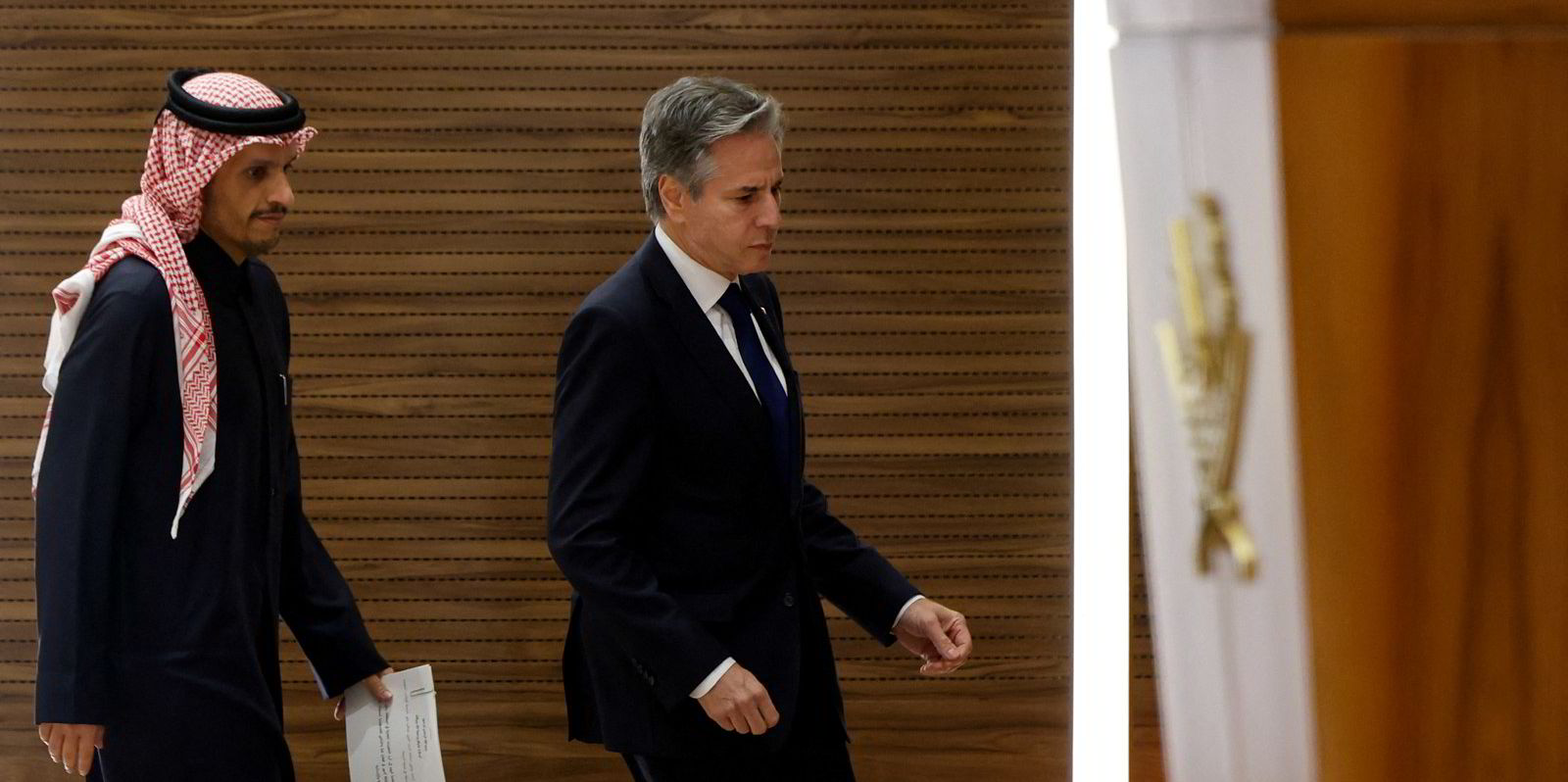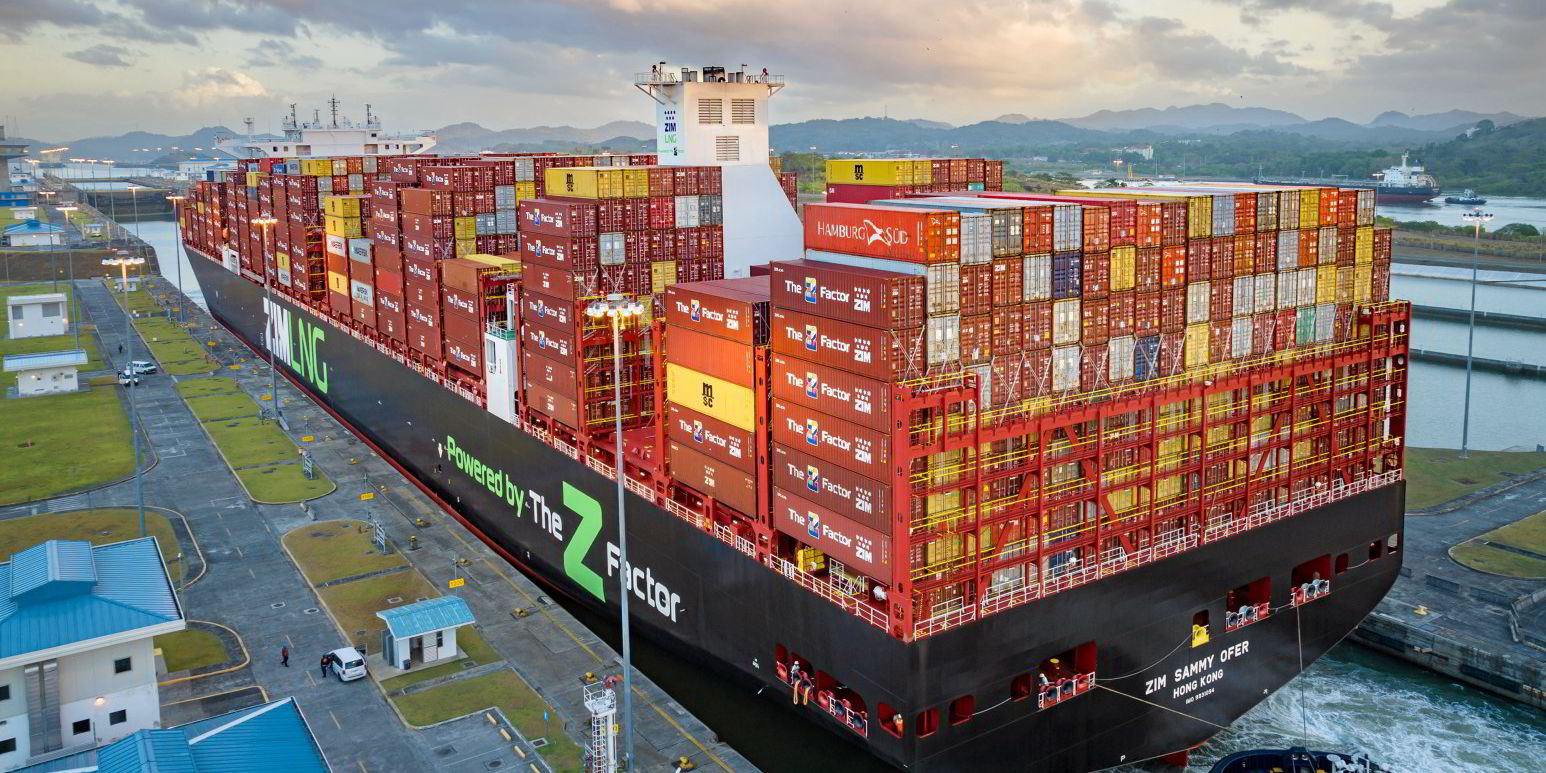Qatar’s prime minister warned against military strikes on the Houthis in Yemen, leading Washington’s top diplomat to say that Houthi attacks on shipping must stop.
As secretary of state Antony Blinken visited the Middle East to meet leaders in the region, Qatar’s Sheikh Mohammed bin Abdulrahman Al-Thani said the country wants freedom of navigation protected but does not advocate a military solution.
“From Qatar policy perspective, we never see a military action as a resolution,” Al-Thani said, according to Doha News.
“Of course, we see the events and what’s occurring over there in the Red Sea, but our biggest worry is to have consequences that will keep us in a loop that will never end and will create real tension in the entire region.”
Al-Thani, who met with Blinken on Sunday in Doha, is also Qatar’s foreign minister.
Asked by a reporter about what message the US was giving its Middle East partners about the potential for military strikes in Yemen, Blinken said later on Monday that Houthi attacks on international shipping are a threat to the international community.
But he made no mention of the threat of strikes in Yemen, continuing the Biden Administration’s messaging that appears calculated to avoid escalating the conflict in the Red Sea.
“We’ve had 40 countries come together to make clear that what the Houthis are doing has to stop. And we have other countries that have made clear that if it continues, there have to be consequences,” Blinken told reporters, according to a State Department transcript.
“So our strong view, our strong preference, is that the Houthis get the message that they’re receiving from countries around the world that this needs to stop. And that’s what we’re focused on.”
Blinken’s comments came amid reports that some liner operators had reached deals with the Iranian-backed Houthis to avoid attacks and as China’s Cosco Shipping Line halted port calls in Israel.
Attacks from Houthi-controlled territory in Yemen started in November, at first targeting ships linked to Israel before expanding their threat.
“You’ve got about 15% of the world’s commerce every day going through that strait, going through the Red Sea,” Blinken said.
“And these attacks are having a real effect on the prices that people have to pay for food, for medicine, for energy. Ships have to get diverted to other places, insurance rates go up and the basic principle of freedom of navigation is what’s at stake.”





